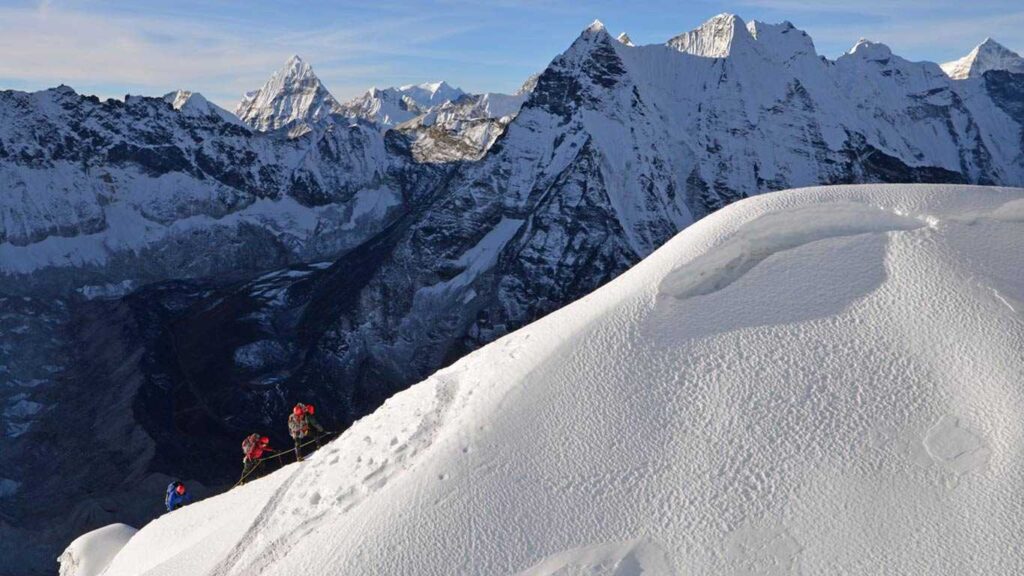
How Hard is Island Peak Climbing?

Island Peak, also known as Imja Tse, is one of the most popular trekking peaks in Nepal. It offers a challenging yet achievable climbing experience for mountaineers. Here’s an overview of the difficulty level associated with climbing Island Peak:
Technical Difficulty: Island Peak is classified as a “trekking peak”. It means it requires basic mountaineering skills but does not necessitate extensive technical climbing experience. However, climbers should be proficient in using ice axes, crampons, ropes, and other basic mountaineering equipment. The final ascent to the summit involves negotiating a steep snow and ice slope. It may require the use of fixed ropes and some basic glacier travel techniques.
Altitude: The altitude of Island Peak is one of the primary challenges for climbers. At 6,189 meters (20,305 feet), it reaches significant elevations where altitude-related issues such as altitude sickness can occur. Adequate acclimatization is essential to mitigate the risks associated with high altitude. Climbers typically spend several days acclimatizing in the Everest region before attempting the summit.
Physical Fitness: Climbing Island Peak requires a good level of physical fitness and endurance. The ascent involves long days of trekking and climbing at high altitude, often in challenging weather conditions. Prior experience with multi-day trekking at altitude is beneficial, as is a regular exercise regimen to build cardiovascular endurance and strength.
Weather Conditions: Weather conditions in the Everest region can be unpredictable and harsh, especially at higher elevations. Climbers should be prepared for cold temperatures, high winds, snowfall, and other adverse weather conditions. The climbing season for Island Peak typically falls in the spring (March to May) and autumn (September to November) when the weather is more stable and conducive to climbing.
Logistics and Support: While Island Peak is technically achievable for experienced climbers, many opt to climb with the support of a reputable trekking agency or expedition operator. These organizations provide logistical support, experienced guides, climbing equipment, and assistance with permits and logistics, enhancing safety and increasing the likelihood of a successful summit.
Overall, while Island Peak climbing is challenging, it is within reach for climbers with prior trekking and some mountaineering experience. With proper preparation, training, and support, it can be a highly rewarding adventure, offering stunning views of the Everest region from the summit.
